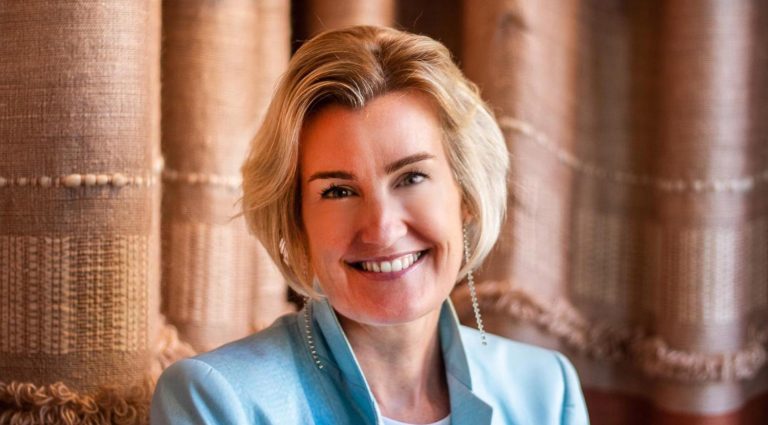Record number of companies raising money through Enterprise Investment Scheme
UK steelmake slumps to lowest level since the Great Depression
White Rose Rail Station takes shape as Spencer Group delivers for partners
BCC Director General urges Government to take more action to support business
Are you due a tax refund? HMRC would like to help you get it
“Thanks to our Spring Budget reforms if someone no longer wants an agent involved in their claim, they’ll be able to cancel it so any future rebates will go to the taxpayer in full.”
Jonathan Athow, HMRC’s Director General for Customer Strategy and Tax Design, said: “Every penny counts and we want to make sure employed workers are getting what they deserve – their hard-earned cash straight back into their pockets. To make a claim just search ‘employee tax relief’ on GOV.UK. It is the quickest way of getting a tax refund on your work-related expenses and ensures you get 100% of the money back.” Submitting a claim through HMRC’s online portal itakes about 15 minutes. Customers can use the handy online tool to check eligibility and a full list of work expenses they can claim including:- uniforms and work clothing
- buying work-related equipment
- professional fees, union memberships, and subscriptions
- using their own vehicle for work travel (excluding journey from home to work)
CMA gets involved in Medivet acquisition of Barton vet practice
“We will continue to monitor the impact of these types of deals so we can take the necessary action to ensure reduced competition won’t reduce the overall availability and quality of local veterinary services.”
Medivet has five working days to offer legally binding proposals to the CMA to address the competition concerns identified. The CMA would then have a further 5 working days to consider whether to accept these instead of referring the cases to Phase 2 investigations.JCT600 scoops Retailer of the Year title from Mercedes
Family business JCT600 has been named as Retailer of the Year for 2022 by Mercedes- Benz as it recognises its best performing dealerships across the UK.
With Mercedes-Benz dealerships in Sheffield, Doncaster, Harrogate, York and Chesterfield, JCT600 won the coveted award based on its ‘outstanding performance in every area of the business, including new car sales, customer service, approved used car sales, workshop retail hours and customer retention’.
Gary Savage, chief exec and MD of Mercedes-Benz Cars UK, said: “JCT600 performed consistently strongly across all areas of the business and the team’s collaboration was nothing short of outstanding, with remarkable engagement and positivity.”
Michelle Caveney, Mercedes-Benz brand director for JCT600 said, “It is a fantastic achievement to be recognised in these prestigious awards which celebrate the very best of Mercedes-Benz’s partners throughout the UK.
“This accolade is testament to the hard work and passion of the 200-plus strong team across our five Mercedes-Benz dealerships in Derbyshire, South Yorkshire and North Yorkshire, demonstrating their customer-centric approach and continued ability to deliver exceptional service. Ensuring that customers have the very best experience when they visit us is at the heart of what we do – our thanks go to all of our colleagues who make this possible.”
JCT600 has grown from a single dealership into one of the largest privately-owned businesses in Yorkshire. With over 50 dealerships from Yorkshire and the North East to Derbyshire and Lincolnshire, the group represents 23 of the world’s leading car marques and has a team of 2,300 colleagues.
Rewards for efforts to make Lincolnshire apprenticeships work
Lincolnshire apprentices, trainers, and employers who have gone above and beyond to make apprenticeships a success, have been recognised at the Apprenticeship Champions Awards ceremony for 2023.
- Health and Care Apprentice Champion – Millie Brightman from Great Northern Physiotherapy Limited
- Education Apprentice Champion – Declan Brown from Scampton Church of England Primary School
- Government and Public Service Apprentice Champion – Abbie Beastall from West Lindsey District Council
- Food Manufacturing Apprentice Champion – Sophie Camm from Bakkavor
- Construction and Engineering Apprentice Champion – Ellie Wilds from Balfour Beatty
- Commercial Services Apprentice Champion – Leila Mae Hall from Masons (Louth) Ltd.
Distribution and manufacturers dominate Yorkshire first quarter industrial activity
Distribution and manufacturing companies continue to dominate Yorkshire’s industrial activity in Q1 of 2023, says commercial property agent Knight Frank.
The past year saw distribution firms reign in West Yorkshire, accounting for 80% of the annual total and up significantly from 13% over the comparable period last year.
While in South Yorkshire, the last 12 months saw a significant uplift in space taken up by manufacturing companies, accounting for 38% of the total. Demand has also continued from distribution occupiers, comprising a further 42% in the year, with retailers less active, at 12%.
This trend continues into 2023 as shown by figures revealed in Knight Frank’s latest LOGIC report covering Yorkshire.
A robust opening quarter saw 496,100 sq ft of industrial and logistics occupier take up in West Yorkshire & the Humber, across four deals (units over 50,000 sq ft) which is 25% higher than Q1 last year, and significantly ahead of the previous three months.
Two notable pre-let deals, logistics service provider Advanced Supply Chain pre-let at Tungsten’s Super B, Interchange 26 in Cleckheaton and IFCO’s pre-let of Equation’s 153,323 sq ft Unit 2 at Prism Park, Glasshoughton, boosted the quarterly total, setting new prime headline rents for the region.
Looking at West Yorkshire and the Humber, Iain McPhail, partner in the Leeds industrial and logistics team, said: “We have seen a welcome increase in take up so far in 2023, with new headline rents being achieved in the process. With the continued dearth of grade A, new speculative development, we are seeing further upward pressure on quoting / ‘guide’ rents.
“There is some 1.5 million sq ft of new space on site and to be delivered over the course of 2023 in the region, although the vast majority of the larger buildings are situated in traditionally ‘secondary’ locations. In the meantime, we expect the new, prime mid-box developments, located in more traditionally sought-after locations, such as in Leeds (Leeds Valley Park and Velocity Point) as well as Prism Park in Wakefield to push rents on further.”
Looking ahead Iain says take up is expected to improve as the year progresses and as new stock reaches practical completion.
“Despite the wider macroeconomic conditions, the first three months alone have already recorded almost 500,000 sq ft of take up, therefore a higher level of transactions is expected for 2023.
“New, high-quality development totalling approximately 1.5 million sq ft is currently under construction and second-hand stock totals circa 1.7m sq ft (units over 50,000 sq ft). Notably, there is only one brand new building available to occupy, and around 37% of the immediately available stock is now under offer.
“Rental growth across all size units has taken place with prime rents in Leeds for units over 50,000 sq ft rising by 10% in the quarter, and by 22% YOY, reaching a new headline of £8.25 psf, however this is forecast to rise again during the next quarter.”
The first quarter of 2023 recorded 247,600 sq ft of take up in South Yorkshire and North East Derbyshire (units over 50,000 sq ft).
Rebecca Schofield, head of the Yorkshire industrial team, looked at South Yorkshire and North Derbyshire.
Occupier deals in quarter one in South Yorkshire included a 164,366 sq ft unit at Nimbus Doncaster, let to Bowker Transport and 83,237 sq ft unit at Phase 2 of PLP’s Bessemer Park, Sheffield, which has exchanged with practical completion expected in late 2023.

Rebecca said: “Development activity has boosted supply. At the end of Q1 2023, approx. 2.2 million sq ft of floorspace was immediately available across the region (units over 50,000 sq ft). This brings the vacancy rate to 3.7%, up from a low of 1.3% recorded a year ago, with the improvement largely owing to a number of development completions. A further 3.5 million sq ft is under construction, up 68% year on year.
“Demand for new units has led to prime rents in the region (units over 50,000 sq ft) growing by 14% annually, to stand at £7.95 psf, with average rents expected to rise but at a more modest rate.”
Summing up Rebecca said: “The region has a strong pipeline of speculative development on site, due for completion during 2023/early 2024. There has also been a number of second-hand buildings that have recently been vacated that have come back to the market, resulting in a healthy supply of buildings to cater for continued occupier demand.
“There are a number of active occupier requirements in the market considering space and also a number of buildings under offer therefore we expect good levels of take up over the coming quarters.”












